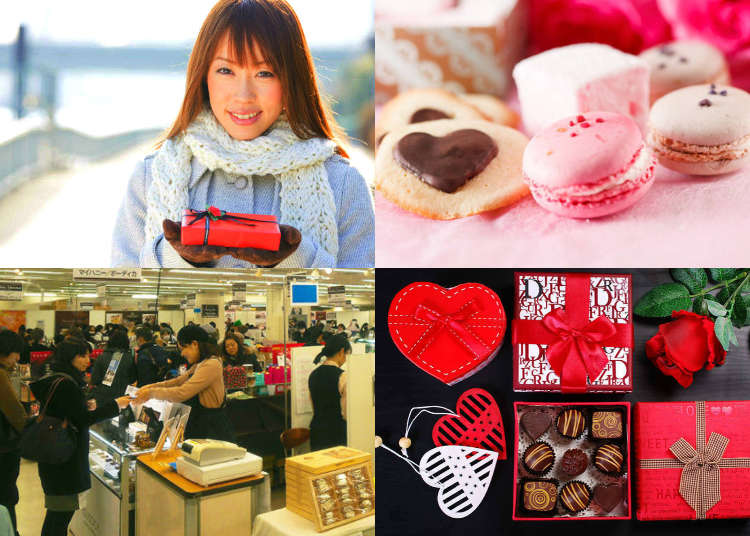
Valentine’s Day is known as the day when one expresses their love to that one special person. In Western countries it is common for both men and women to participate in a gift exchange. Often, the approaching date of February 14th causes men across the world to scramble, trying to pick out a gift, or plan the perfect date.
However, in Japan, Valentine’s Day plays out a bit differently. Despite being a relatively new event in the country, Japan has its very own Valentine’s Day customs and traditions.
For starters, the roles are actually reversed and it is women who bear the pressure of giving gifts. The favor is then returned exactly one month later on March 14th on a day known as White Day, when men are encouraged to give gifts back to the women who treated them on Valentine’s Day. The differences do not end there.
Past and Present – A Day of Chocolate
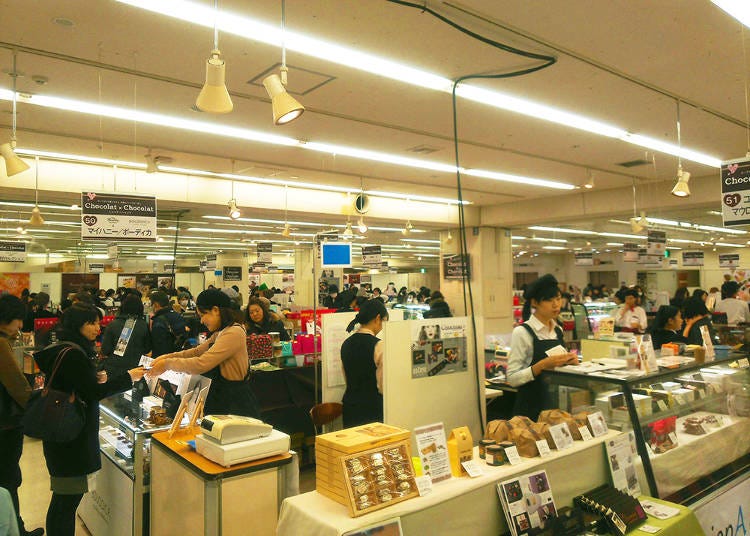
Valentine’s Day became popular in Japan in the 1950s, due in part to a few notable business campaigns, particularly, a confectionary that began selling heart-shaped chocolates during the season, and a large department store that ran a “Valentine's Sale,” an idea that was followed by other department stores, and continues to this day.
Their target customers were women, who were encouraged to buy beautiful and delicious chocolates for the men in their lives. The department store displays were elegant, and the popularity continued to grow throughout the years.

These days, Valentine’s chocolates are more popular than they have ever been! Store displays have become increasingly elaborate, offering various tastes and styles of chocolate. The packaging is often just as exquisite as the chocolates themselves, and most department stores will offer gift wrapping services to make the chocolate gifts even more special. Prices range from modest to quite expensive.
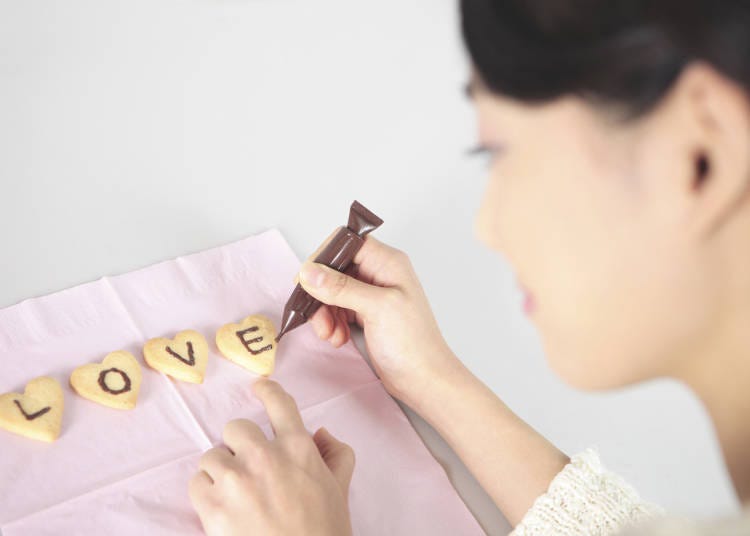
Not all the chocolate given on Valentine’s Day in Japan is from a store, however. Homemade chocolates are also a popular, and some would say more personal, sweet to give to loved ones.
In February, Japanese shops feature many ingredients and supplies specifically for Valentine’s Day, including colorful sprinkles, confectioner’s sugar, heart-shaped candy molds, as well as special boxes and wrapping materials.
While chocolates, whether bought or homemade, are usually the gift of choice, other gifts may also be given. Other acceptable gifts include shirts, neckties, watches, or anything that can be useful.
So Many Types of Chocolates for Valentine's Day in Japan?!
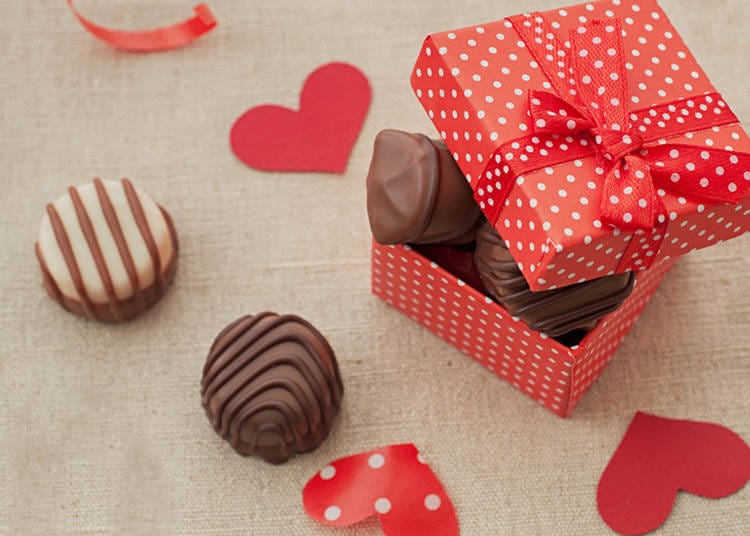
Another thing to note about Valentine’s Day in Japan is that women not only give chocolate to men for whom they have romantic feelings, but also male family members, and even coworkers.
However, not all chocolate is considered equal, and the type of chocolate given depends on the relationship. The Japanese have different words to describe the types of Valentine’s Day chocolates given on Valentine’s Day.
”Giri Choco” - 義理チョコ
Giri choco are known as the “obligation chocolates” that are doled out to workmates, family members, and acquaintances. Typically, this type of chocolate is relatively cheaper, and the present is in no way considered a romantic gesture.
”Honmei Choco” - 本命チョコ
Honmei choco are meant to be given to a romantic partner, or a person for whom a woman has romantic feelings. In other words, honmei choco are love chocolates! Women often take great care to select honmei choco, which is typically, higher quality, more aesthetically appealing, and as such, higher in price.
”Tomo Choco” - 友チョコ
Not everyone celebrates romance on Valentine’s Day and White Day. However, singletons need not despair! It is quite popular for women to give chocolates to their female friends as well. This is known as tomo choco.
White Day Japan: Valentine’s Day Sister Holiday
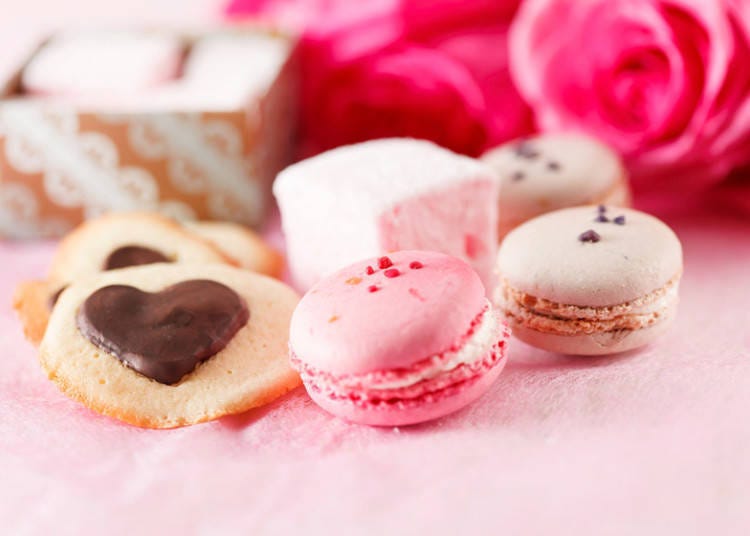
Exactly one month later on March 14th, Japan celebrates what is known as “White Day.” This is where the recipients of Valentine's Day chocolates are expected to return the favor. Many women look forward to this day where men are encouraged to show their feelings through gift giving.
Whether someone is madly in love, wants to express feelings of friendship, or simply has a sweet tooth, the Japanese holidays of love have something for just about everyone!
*Prices and options mentioned are subject to change.
*Unless stated otherwise, all prices include tax.
Popular Tours & Activitiess
Recommended places for you
-

Kambei Sannomiyahonten
Yakiniku
Kobe, Sannomiya, Kitano
-

Kanzenkoshitsuyakinikutabehodai Gyugyu Paradise Sannomiya
Yakiniku
Kobe, Sannomiya, Kitano
-
Goods

Yoshida Gennojo-Roho Kyoto Buddhist Altars
Gift Shops
Nijo Castle, Kyoto Imperial Palace
-

ISHIDAYA Hanare
Yakiniku
Kobe, Sannomiya, Kitano
-

Jukuseiniku-to Namamottsuarera Nikubaru Italian Nikutaria Sannomiya
Izakaya
Kobe, Sannomiya, Kitano
-
Appealing

Rukku and Uohei
Izakaya
Sapporo / Chitose
-

Farewell, Heavy Suitcases! Keisei Ueno’s New Service Makes Your Last Day in Tokyo Totally Hands-Free
by: Guest Contributor
-

Top 3 OSHI MAPs for the Best Matcha and Sweets in Tokyo
by: Guest Contributor
-

To the Holy Land of Kawaii! Odakyu Tama Center Station Is Becoming a Dreamy Sanrio Wonderland
by: Guest Contributor
-
Ad

What Makes Japanese Yakiniku So Darn Good? Guide to Cuts, Heat, and Wagyu Know-How
-

A New Tokyo Landmark Is Coming in 2026, and It's Built for Modern Travelers
by: Guest Contributor
-

Where to Buy a Japanese Kitchen Knife? Why Travelers Choose MUSASHI JAPAN's 14 Stores in Tokyo, Kyoto, and Nara
by: Guest Contributor
-

Getting Around Hokkaido in Winter: Transportation Tips to Know Before You Go
-

Fine Japanese Dining in Kyoto! Top 3 Japanese Restaurants in Kiyamachi and Pontocho Geisha Districts
-

Exploring the Masterpieces: Popular Art Museums in Ueno
-

Unmissable Bargains! 8 Osaka Capsule Hotels in Japan's Food Haven (From $20!)
-

Japan’s Nuisance Ranking: What Annoys Japanese Most About People in Trains
-

Universal Studios Japan: Guide to Osaka's Giant Theme Park Attractions!
by: WESTPLAN
- #best sushi japan
- #what to do in odaiba
- #what to bring to japan
- #new years in tokyo
- #best ramen japan
- #what to buy in ameyoko
- #japanese nail trends
- #things to do japan
- #onsen tattoo friendly tokyo
- #daiso
- #best coffee japan
- #best japanese soft drinks
- #best yakiniku japan
- #japanese fashion culture
- #japanese convenience store snacks












